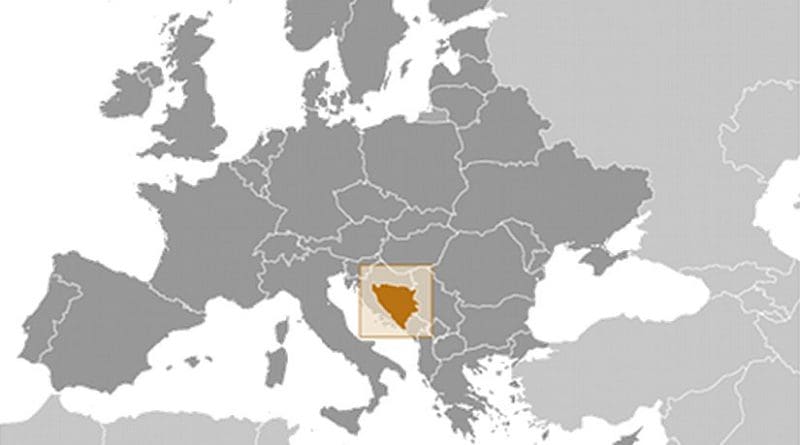Bosnia: Constitutional Court Decisions Open Pandora’s Box
By Srecko Latal*
The Bosnia Constitutional Court’s most recent set of decisions could lead to a new and dangerous escalation of the current political crisis, opening a “pandora’s box”, local and international officials told BIRN.
The court, at its latest panel session Thursday, made several decisions on key issues which will likely have a major impact on the country, sources said.
Among these issues, the most important is related to an appeal filed by Bosnian Croat politician Bozo Ljubic, submitted in September 2016, complaining that the electoral mechanism to establish the House of Peoples in the Federation of Bosnia and Herzegovina violates the constitution.
The Constitutional Court partially accepted this appeal in December 2016 and gave Bosnia’s state parliament six months to fix problematic parts of the election law. Parliament – which has been left without majority support since late last year – failed to amend the law, so the court decided to remove problematic parts of the law itself.
In doing so, the court removed the legal basis for establishing the House of Peoples in the Federation. Without it, governments cannot be formed on either a federal or state level, a Bosnian government official told BIRN, speaking on condition of anonymity.
The Bosnian state parliament now has until October next year to amend the election law. This is when next general elections are scheduled. If this does not happen, after the elections Bosnia will be left without both state and federal governments, which could then lead to chaos, anarchy and possible disintegration, the official said.
A similar legal situation occurred in the southern town of Mostar in 2012. The state parliament failed to amend parts of the electoral law that were found to be unconstitutional, so the constitutional court erased them.
As a result, Mostar has not since held local elections and has been ruled by its mayor, Ljubo Beslic, via a technical mandate. Such a situation could not save the state and federation, which need both executive and legislative institutions to function properly, officials told BIRN.
US and EU administrations are aware of this situation and are pondering their next steps, Western diplomats told BIRN.
The same day, the constitutional court made several other controversial decisions. It rejected an appeal filed by Bosnian Serb politicians from the National Assembly of Bosnia’s Serb-dominated entity of Republika Srpska.
They claimed that Bosnia’s state holidays – March 1 (Independence Day) and November 25 (Statehood Day) violated the constitution because they are not recognized as state holidays by Republika Srpska.
This decision triggered a strong reaction from Republika Srpska president Milorad Dodik, who in the past made no secret of the fact that that this appeal was the tit-for-tat move after the constitutional court in November 2015 declared Republika Srpska Day on January 9 unconstitutional due to the fact that the same day was also an Orthodox religious holiday, St. Stephen’s day.
Speaking from eastern Bosnian town of Zvornik on Thursday, Dodik declared this latest decision of the state constitutional court further proof that the court is a political court controlled by Bosniaks, passing decisions against Serb and Croat national interests.
Dodik also stressed that two Serb representatives should withdraw from the court.
Local and international officials and experts told BIRN they feared that Dodik will use this decision to attempt another push to abolish the state constitutional court, which he has been trying to do for the past several years.
The state constitutional court also ruled that a Croat Democratic Union, HDZ, proposal to reform an election law for the state presidency, the House of Peoples in the Federation and Mostar city council, was not violating vital national interests of Bosniaks, as a group of Bosniak politicians had claimed.
The draft law, criticized by EU and US officials and local experts as being ethnically even more divisive then the current law, will now be able to be put back on parliament’s agenda, where it will likely trigger new disputes especially between Bosniak and Croat ruling national parties.

